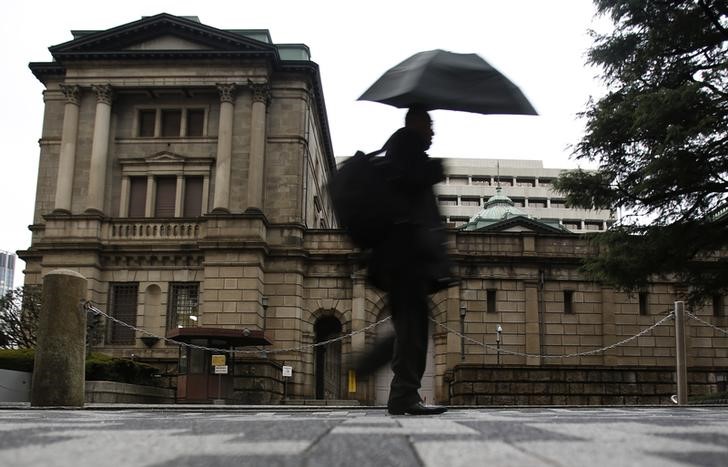Investing.com - A month before the Bank of Japan board surprised markets and introduced negative interest rates, board member agreed that the bank didn't need to consider expanding its aggressive monetary easing as it judged the underlying price trend had been improving steadily despite some weak data, the minutes released Wednesday showed.
"Members noted that, in pursuing QQE, the bank would examine both upside and downside risks to economic activity and prices, and make adjustments as appropriate," the minutes said from at its Dec. 17-18 meeting, referring to the quantitative and qualitative easing launched in April 2013 which so far has failed to boost inflation to the bank's target of stable 2%.
"They then concurred that such adjustments were not necessary at this point, as QQE had been exerting its effects and the underlying trend in
inflation continued to improve steadily."
Only about a month later, the BOJ board decided in a tight 5 to 4 vote to ease policy by adopting negative interest rates to counter unstable stock markets and increased uncertainty over China and other emerging economies. The bank left its target for the monetary base and asset purchases unchanged, however.
"Some members - noting that there was concern among some market participants as to whether it was feasible for the bank to continue purchasing assets - expressed the recognition that the bank should facilitate smoother asset purchases under QQE and dispel such concern by taking measures that would allow it to prepare for the technical obstacle that was anticipated by market participants," the minutes said.
